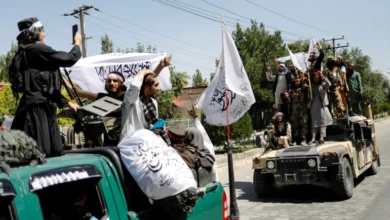Analysis: Iraq’s new budget may hamper more than it helps

The Iraqi Council of Representatives passed the 2023, 2024 and 2025 federal budgets on June 12, nearly eight months after Prime Minister Mohammad Shia al-Sudani’s new government was formed.
This year’s budget is Iraq’s largest at 198.9 trillion Iraqi dinars, about $153bn based on the official exchange rate. The 2024 and 2025 budgets will be the same unless the cabinet requests any changes and Parliament approves them.For the first time, the government took advantage of 2019’s financial management law, which allows for up to a three-year budget. Iraq has not only been slow at passing budgets, but three out of the past nine years also saw no budget passed at all – in 2014, 2020, 2022.
Although there is only half a year left to spend the 2023 budget, there is the reassurance that the next two years will be covered, guaranteeing the government a budget until the next federal elections in late 2025 and for provincial council elections scheduled for this year.
The federal budget also allows the government to fund local investment projects and hire hundreds of thousands of public sector employees, which reflects positively on the prime minister and his governing coalition and increases their electability in both upcoming elections.
Ambitious yet precarious
However, Iraq’s economy and budget rely heavily on oil, which puts both in a precarious position. Nearly all state revenue is from oil sales. In 2022, Iraq earned a record $115.6bn from oil, but it is a volatile commodity. Iraq is not in control of the global oil market, and it is not a relevant decision-maker in OPEC despite being the second-largest member in terms of production.This leaves Iraq vulnerable to the precarity of oil markets and the decision-making of other OPEC members regarding output, especially since this budget is based on an ambitious oil price of $70 a barrel. If the price dips, it risks unleashing a cascade of economic woes and public anger.
The budget calls for more than half a million Iraqis to be hired this year. It is not the first budget to include massive public sector hiring. Iraq is a country that already struggles with an overburdened public sector of at least 4.5 million employees.
Government offices are overcrowded and disorganised, slowing bureaucracy down further. Big hiring this year will also burden future governments with pensions.











